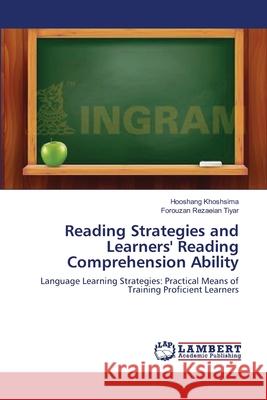Reading Strategies and Learners' Reading Comprehension Ability » książka
Reading Strategies and Learners' Reading Comprehension Ability
ISBN-13: 9783659633348 / Angielski / Miękka / 2014 / 304 str.
Within communicative, interactive and learner-centered framework of language teaching, students need to learn four skills of listening, speaking, reading, and writing for their educational success. But of all the language skills, reading enjoys a paramount significance in so many Second or Foreign Language academic contexts. Nowadays, reading within the domain of EFL contexts portrayed active processes by which a language learner is actively engaged in successful comprehension of the target text so that he or she could appropriately unlock the writer's intended meaning. Comprehension involves constructing meaning that is reasonable by relating what we attend in the world around us to what we already know and what we have in our heads about all of this information until it is understood. Most contemporary discussions among researchers concentrate on the training of and use of multiple reading strategies to achieve comprehension. Hardebeck (2006) defined reading comprehension strategies as mental operations, tools or plans used by readers for facilitating and extending their comprehension. Therefore, comprehension which is the final goal of reading, is not done in a vacuum.
Within communicative, interactive and learner-centered framework of language teaching, students need to learn four skills of listening, speaking, reading, and writing for their educational success. But of all the language skills, reading enjoys a paramount significance in so many Second or Foreign Language academic contexts. Nowadays, reading within the domain of EFL contexts portrayed active processes by which a language learner is actively engaged in successful comprehension of the target text so that he or she could appropriately unlock the writers intended meaning. Comprehension involves constructing meaning that is reasonable by relating what we attend in the world around us to what we already know and what we have in our heads about all of this information until it is understood. Most contemporary discussions among researchers concentrate on the training of and use of multiple reading strategies to achieve comprehension. Hardebeck (2006) defined reading comprehension strategies as mental operations, tools or plans used by readers for facilitating and extending their comprehension. Therefore, comprehension which is the final goal of reading, is not done in a vacuum.











